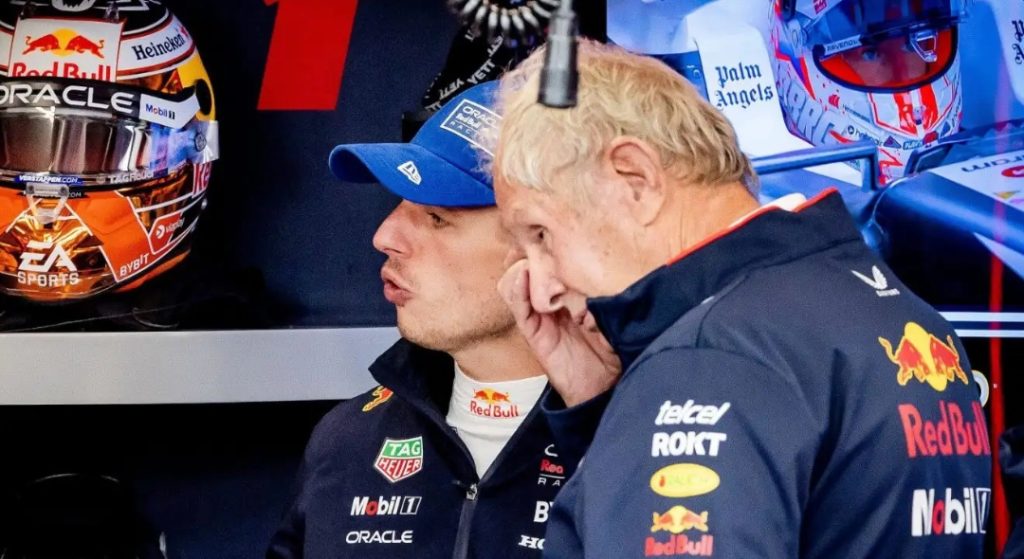FIA Issues St…….After Third F1 Team Lodges C……… t About ……

FIA Issues St…….After Third F1 Team Lodges C……… t About ……
The Federation Internationale de l’Automobile (FIA) has issued a statement addressing the ongoing controversy surrounding McLaren’s car following the Italian Grand Prix. This statement comes in response to a series of complaints from rival teams, including Red Bull, Ferrari, and most recently, Williams. These teams have raised concerns about the front wing design of the McLaren MCL38 and the Mercedes W15, suggesting that they may be using a flexible front wing design to gain a competitive advantage.
The controversy around so-called “flexi-wings” in Formula 1 is not new, but it has gained fresh momentum following the Italian Grand Prix. Onboard footage from the Monza race appeared to show a significant amount of flexibility in the front wings of both the McLaren and Mercedes cars. The footage sparked renewed scrutiny, with rival teams suggesting that the movement could provide an aerodynamic advantage by allowing the wing to adjust its angle of attack under varying loads.
The complaints started with Red Bull and Ferrari, who have been at the forefront of challenging the legality of McLaren’s front wing. Both teams requested discussions with the FIA, seeking clarification on whether the designs of the MCL38 and W15 adhere to the technical regulations. Now, Williams has joined the fray, becoming the third team to lodge a formal complaint about the matter.
In a swift response, the FIA released a statement confirming that both the McLaren and Mercedes cars comply with the technical regulations. According to the FIA, both teams’ front wings were inspected thoroughly after the Italian Grand Prix, and no evidence of regulatory violations was found.
“The front wings of both the McLaren MCL38 and Mercedes W15 have been examined in detail, and we have concluded that they meet the technical requirements as stipulated in the regulations,” the FIA’s statement read. “There is no indication that either team has breached the rules regarding flexible bodywork.”
Despite this official clarification, the issue remains a hot topic within the F1 paddock, with several team principals expressing frustration over the perceived ambiguity in the regulations. The term “flexi-wing” refers to a component that can change its shape or position under aerodynamic load, a concept that the FIA has repeatedly tried to eliminate to ensure fairness and safety in the sport.
The strong performance of both McLaren and Mercedes in recent races has intensified speculation about their front wing designs. Both teams have been on upward development trajectories, and their apparent use of innovative aerodynamics could be contributing to their recent success. McLaren, in particular, has seen a resurgence in form, with a series of podium finishes that have put the team back in contention for top spots in the Constructors’ Championship.
The renewed focus on McLaren and Mercedes’ front wings has raised questions about the effectiveness of the FIA’s current regulations and testing methods. Several teams, including Red Bull and Ferrari, have suggested that the current tests are insufficient to detect all forms of wing flexibility, prompting calls for more stringent testing protocols.
Red Bull Team Principal Christian Horner has been vocal about the need for clarity on the regulations. “We just want to ensure there is a level playing field,” Horner said. “If there are teams that have found a way around the regulations, then it needs to be addressed. We trust the FIA to do that fairly and thoroughly.”
Ferrari’s Mattia Binotto echoed similar sentiments, emphasizing the need for consistency in the application of the rules. “The rules are clear, but the interpretation of them can sometimes be a grey area. We need to ensure that there is no room for doubt,” Binotto commented.
Williams, the latest team to join the chorus of complaints, has not yet released an official statement, but sources within the team suggest that they share concerns about the potential advantages that flexible wings could provide.
With several teams now voicing their dissatisfaction, the FIA may face increasing pressure to revisit the regulations surrounding flexible wings. The governing body’s current stance is firm, but further complaints or evidence from the teams could force a re-evaluation of the existing tests and standards.
For now, McLaren and Mercedes have been cleared of any wrongdoing, but the controversy is far from over. As the Formula 1 season progresses, it is likely that this issue will remain in the spotlight, with teams continuing to push for the fairest and most transparent competition possible.



